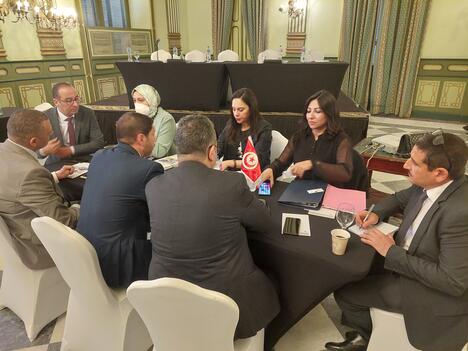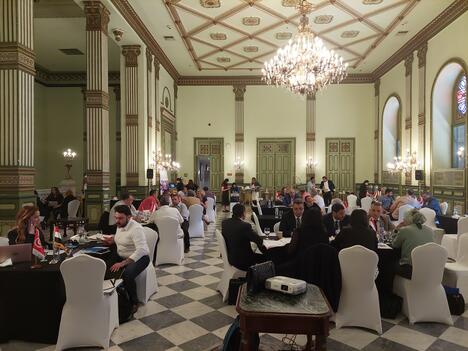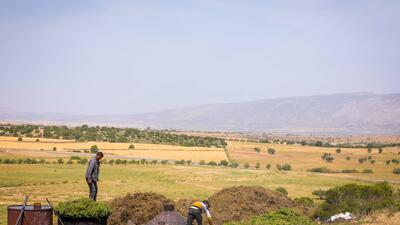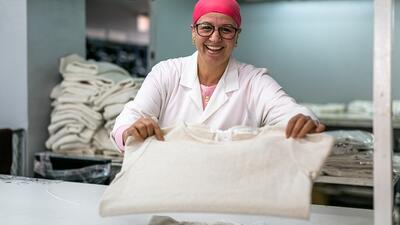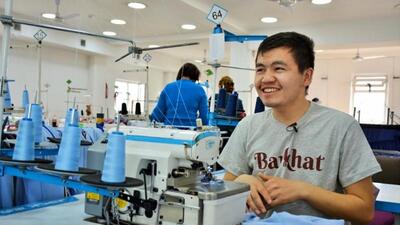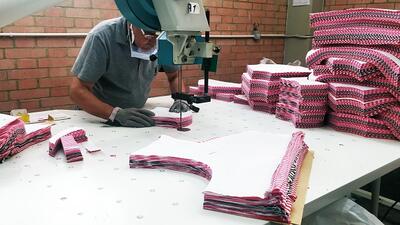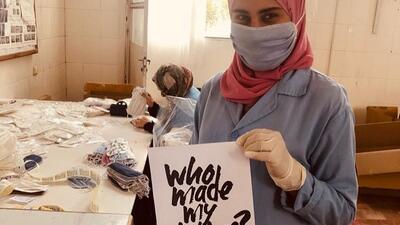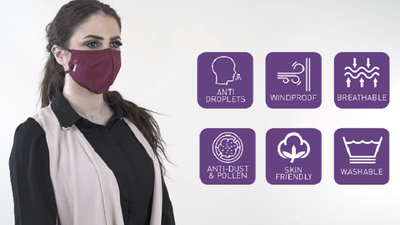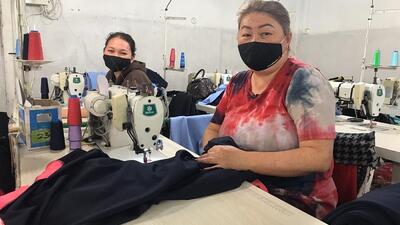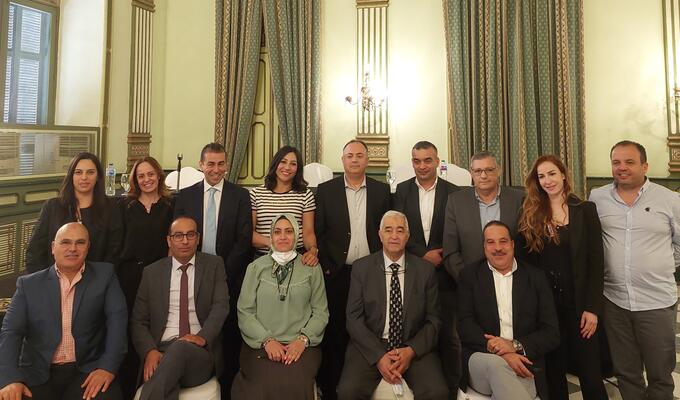
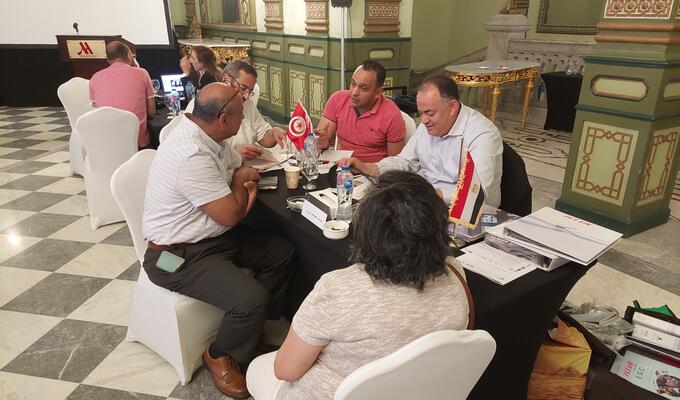
ITC brings Tunisian textiles firms to Egypt to boost regional trade
In the first business-to-business mission since the pandemic, the International Trade Centre brought together 10 Tunisian and 26 Egyptian companies in May in Cairo, to talk about businesses and explore opportunities for regional trade.
Textiles and clothing are among the leading exports in the Middle East and North Africa. The Agadir Agreement created a free trade area among Egypt, Jordan, Morocco and Tunisia, making these countries important drivers of activity in the sector.
In 2019, their combined exports of $8.6 billion accounted for 55% of textile and clothing exports from the Middle East and North Africa.
The International Trade Centre supports small and medium-sized enterprises in the Agadir countries to increase regional trade, through the Global Textiles and Clothing programme and its related work in the region. Known as GTEX/MENATEX, this programme fosters the development of regional supply chains, facilitates collaboration, and shares experiences and best practices.
"This was the first regional activity after the pandemic. It gave companies the motivation needed as markets reopened, business travels and in-person trade fairs are back to everyday reality,” said Rasha Fahim, executive director of the Egyptian Textiles & Home Textiles Export Council (THTEC).
“Overall, the feedback received from participants was very positive, and we are delighted to see the successful exchanges.”
The Tunisian businesses worked in lingerie, sportswear, denim, zippers and accessories. The Egyptian businesses worked in casuals, knitwear, acrylic, bamboo, blends yarns, as well as cottons.
The 85 meetings and 18 factory visits have already yielded tangible results. Éclair, a Tunisian company that produces accessories, has started selling its products to two Egyptian garment manufacturers.
"Taking part in the mission organized by the GTEX/MENATEX programme has helped us to understand the offer of Egyptian suppliers of fabrics and yarns and how we could start doing business with them,” said Tarek Ben Haj Ali, general manager of Workman Group, a Tunisian company that has made workwear for over 25 years. He met with six Egyptian companies and is optimistic that those relationships will grow.
Remon Adly, director of Egypt’s Riad Group, also established new potential business connections.
"We had meetings with six Tunisian enterprises, and they visited our company premises,” he said. “They were able to verify the quality of our products and the high standard of our production facilities. Some of them already expressed interest in starting a business together in the near future.”
Riad Group is a family business founded in 1930, producing knitted fabric and ready-made garments.
"It is certainly essential to create linkages between the MENA countries,” Adly said. “Nevertheless, it is necessary to improve logistics connections between them to ease the process of economic and trade exchange."
The EU and the United States are the biggest buyers of textiles in the Agadir region.
By contrast, exports to neighbouring countries remain relatively low, partly due to weaker purchasing power. But to comply with EU trade rules encourage countries within Agadir to work with each other’s products before exporting them. This could encourage more trade within region along the supply chain, even if finished goods are destined for the EU.
That’s why Egyptian yarn and fabric suppliers as well as Tunisian accessory suppliers were reported early successes from the trade mission.
This mission also connected business support organizations in Tunisia (Ministry of Trade and Industry, CETTEX and FTTH) and Egypt (Ministry of Trade and Industry, THTEC, AECE). All agreed to work closer together to facilitate trade, improve logistics and reduce non-tariff barriers among the two countries.
About the GTEX/MENATEX Programme
The Global Textiles and Clothing Programme (GTEX) and its related work in the Middle East and North Africa (MENATEX) supports Small and Medium-Sized Enterprises (SMEs) and Business Support Organizations (BSOs) working in the textile and clothing (T&C) industry in developing countries to increase export competitiveness.
The GTEX/MENATEX programme is funded by the State Secretariat for Economic Affairs (SECO) of the Swiss Confederation and the Swedish International Development Cooperation Agency (Sida), focusing on six priority countries (Egypt, Morocco, Jordan, Kyrgyzstan, Tajikistan and Tunisia).




